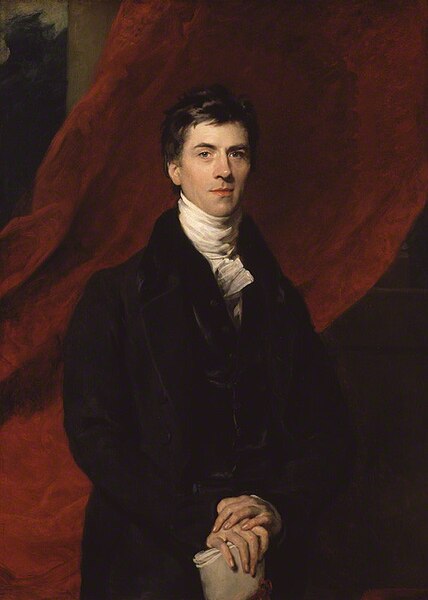Henry Brougham, 1st Baron Brougham and Vaux
Henry Peter Brougham, 1st Baron Brougham and Vaux, was a British statesman who became Lord High Chancellor and played a prominent role in passing the Reform Act 1832 and Slavery Abolition Act 1833.
Henry Brougham, 1st Baron Brougham and Vaux
Sir Henry Brougham by John Adams Acton 1867
Brougham Hall in 1832
Henry Brougham in 1825
Slavery Abolition Act 1833
The Slavery Abolition Act 1833 was an Act of the Parliament of the United Kingdom which provided for the gradual abolition of slavery in most parts of the British Empire. It was passed by Earl Grey's reforming administration and expanded the jurisdiction of the Slave Trade Act 1807 and made the purchase or ownership of slaves illegal within the British Empire, with the exception of "the Territories in the Possession of the East India Company", Ceylon, and Saint Helena. The Act came into force on 1 August 1834, and was repealed in 1998 as a part of wider rationalisation of English statute law; however, later anti-slavery legislation remains in force.
Illustration from the book: The Black Man's Lament, or, how to make sugar by Amelia Opie. (London, 1826)
Protector of Slaves Office (Trinidad), Richard Bridgens, 1838
Poster for an event in Worcester, Massachusetts in 1849, commemorating the end of slavery in the British West Indies
Portrait of abolitionist Thomas Clarkson, circa 1840, after Henry Room; on the scroll is "Slavery abolished; Jamaica; August 1st 1838", the date the apprenticeships ended








